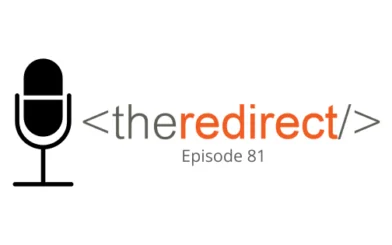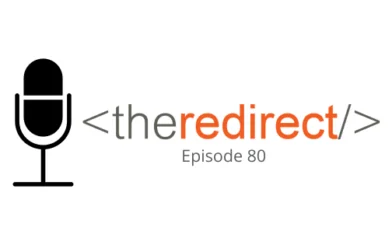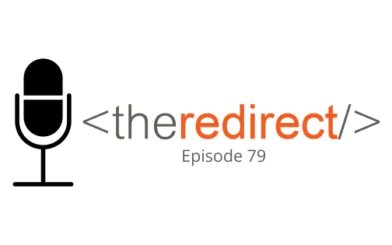Episode 25 / December 15, 2017
Listen Now:
In this episode of The Redirect Podcast:
Lots of Google talk this week!
- Google Changes Snippet Length (begins at 5:06)
- Search Console Beta Features (begins at 12:21)
- Google’s 2017 Year in Search (begins at 17:16)
- Quick recap of new targeting features in Google AdWords (begins at 21:50)
Google Changes Snippet Length in SERPS
Google’s big change has taken place around the topic of snippet length, or what they display within the search engine results pages (SERPs). This can be viewed in both a desktop AND a mobile environment.
What we used to aim for was around a 156-165 character limit cutoff, prior to the middle of this month. Moz’s Rand Fishkin reported in a Whiteboard Friday from last week that they have measured the descriptions reaching 266 and 273 character lengths now.
What this means is that Google just updated their “best practices” guidelines (which if you haven’t read, it’s a crazy manifesto of sorts). They (Google) don’t necessarily disclose that there is a specific set character length to go by. Danny Sullivan has been quoted as saying probably not greater than 320 characters.
So what does this mean? The impact this can have has been discussed at pretty great detail by the folks at Moz, Search Engine Land, etc.
First and foremost, it’s time to consider refreshing and updating those Meta Page Descriptions.
While Moz speculates that there could be fewer clicks on less complex queries, much like you see with true featured snippets and position zero listings, the lengthier snippets could garner a bump in clicks on more complex searches. We suggest planning some updates, specifically to those top pages on your site.
For site admins using WordPress and the popular Yoast SEO Plugin – we know that while Yoast will truncate the meta description on the backend, it will in fact allow you to write these out longer. We did a test on a couple of our own pages to verify, and were able to bump those out past the 260+ mark without any issue.
Google Search Console Beta
Though we didn’t get “The Link” added to our main dashboard for Google Search Console Beta, others have, and they’ve been talking about it. Sounds like the new Search Console will be a game changer. (Follow along on the Google Webmaster Central Blog, Search Engine Roundtable, and Search Engine Land.)
Search Console Beta expands the data available to a 12+ month timeframe. In menu options, Beta shows the standard timelines as we see in AdWords and Analytics, including a “full duration” that will be along the lines of however long your site has been verified in Search Console.
As part of a total interface relaunch that, just yesterday, Google said will be launching in early 2018, getting data for longer periods of time than the current 90 days is a real game-changer and will be exponentially more helpful for gaining insights from actual search results.
Ninety days isn’t really long enough to compare metrics after a site’s relaunch. Furthermore, it doesn’t give SEOs much time to compare a period of activity over another period. Trends will be much more noticeable now: Was that spike from a product launch? Was that dip a regular seasonal occurrence? What was that search term like last year vs. right now?
The Search Analytics section of Search Console is such a treasure trove of data. We’re looking forward to diving in deeper when we get access to these updates.
Additional changes coming:
- Identifying more “root causes” of errors.
- Organizational workflow with shared functionality.
- Faster communication between you/Google, and not waiting for Google to recrawl the site, offering on-the-spot testing.
- Sections dedicated to AMP pages and diagnosis of AMP issues.
Bonus Content! Patrick actually did his homework for the challenge he posed in episode 24 of the podcast: Look for holiday marketing flops. As you may have heard, McDonald’s had a moment. Our discussion of this challenge is at the beginning of the podcast, ending at 5:05.
Google’s 2017 Year in Search
The trends compiled in Google’s “Year in Search” feature always reflect a great snapshot of the year itself through what people have been searching.
For instance, check out the top searches in the U.S. according to Google’s 2017 Year in Search:
Searches
- Hurricane Irma
- Matt Lauer
- Tom Petty
- Super Bowl
- Las Vegas shooting
- Mayweather vs. McGregor fight
- Solar eclipse
- Hurricane Harvey
- Aaron Hernandez
- Fidget Spinner
News
- Hurricane Irma
- Las Vegas shooting
- Solar Eclipse
- Hurricane Harvey
- Bitcoin Price
- North Korea
- Hurricane Jose
- Hurricane Maria
- April the Giraffe
- DACA
In comparison, 2016 saw trends around the presidential election, the Olympics, the Orlando shooting, and Brexit. In 2015, trends included Star Wars: The Force Awakens, Cecil the Lion, and guns in America.
Look back at the Year in Search 2016 and Year in Search 2015. You can also play around in Google Trends’ Year in Review to see global trends or trends by country.
To leave you with a takeaway from this year’s roundup, Google CEO Sundar Pichai said searchers searched “how” phrases more this year than ever before.
This year we searched “How” more than ever before. The questions we asked show our desire to understand, and ultimately improve the world around us. #YearinSearch https://t.co/IBWcPgz5uB
— Sundar Pichai (@sundarpichai) December 13, 2017
What does this mean for you? Instead of leading in website content with your service your solution, consider the intent behind a “how” or a “why” search query. The searcher has a problem. Lead with the problem you can solve, and you will ultimately fulfill what the user is looking for.




